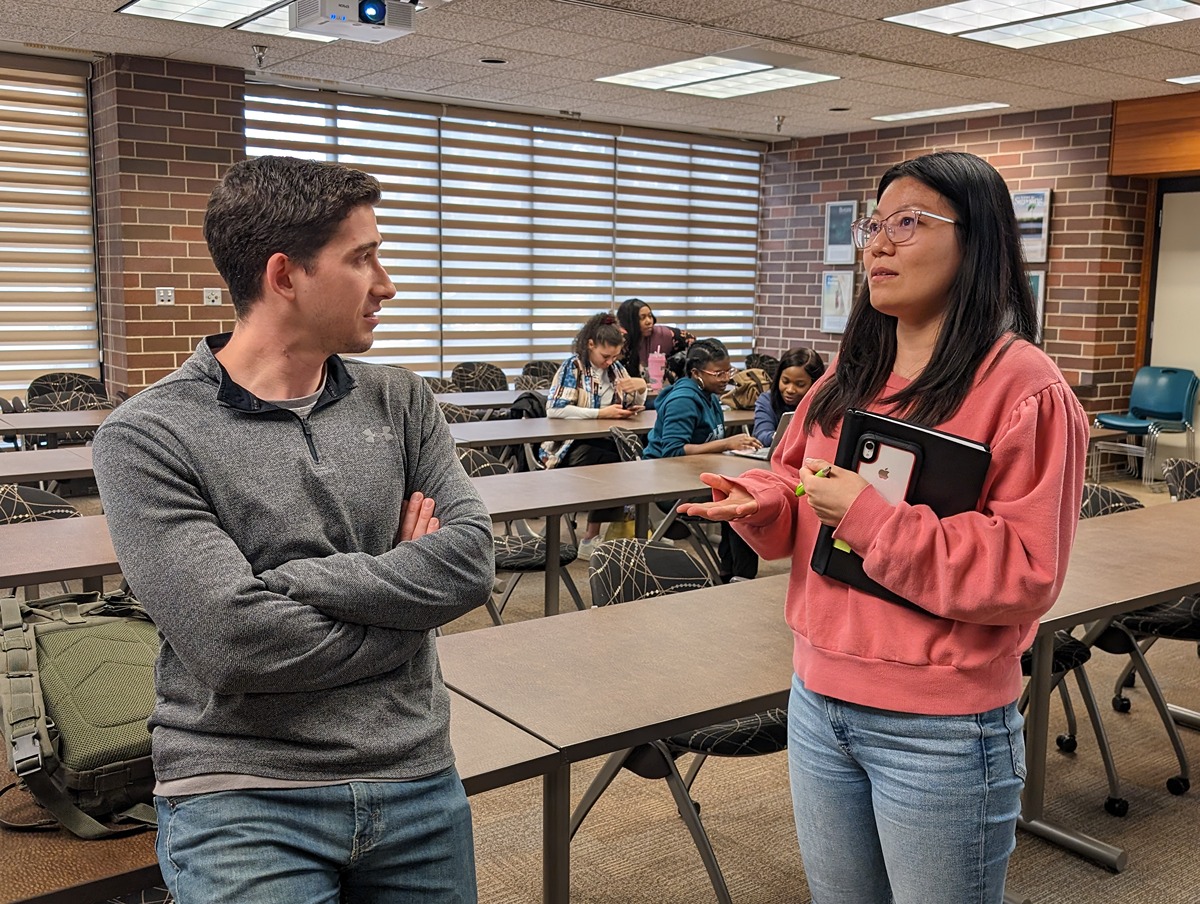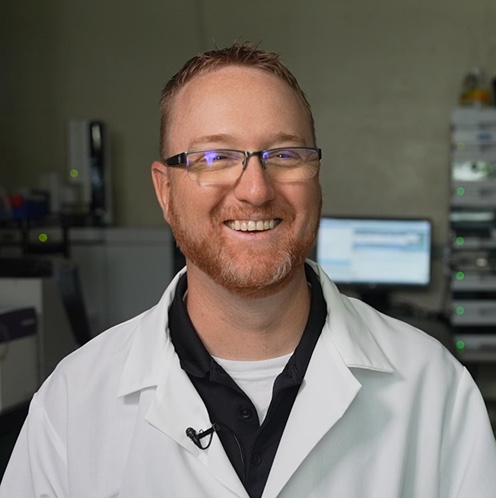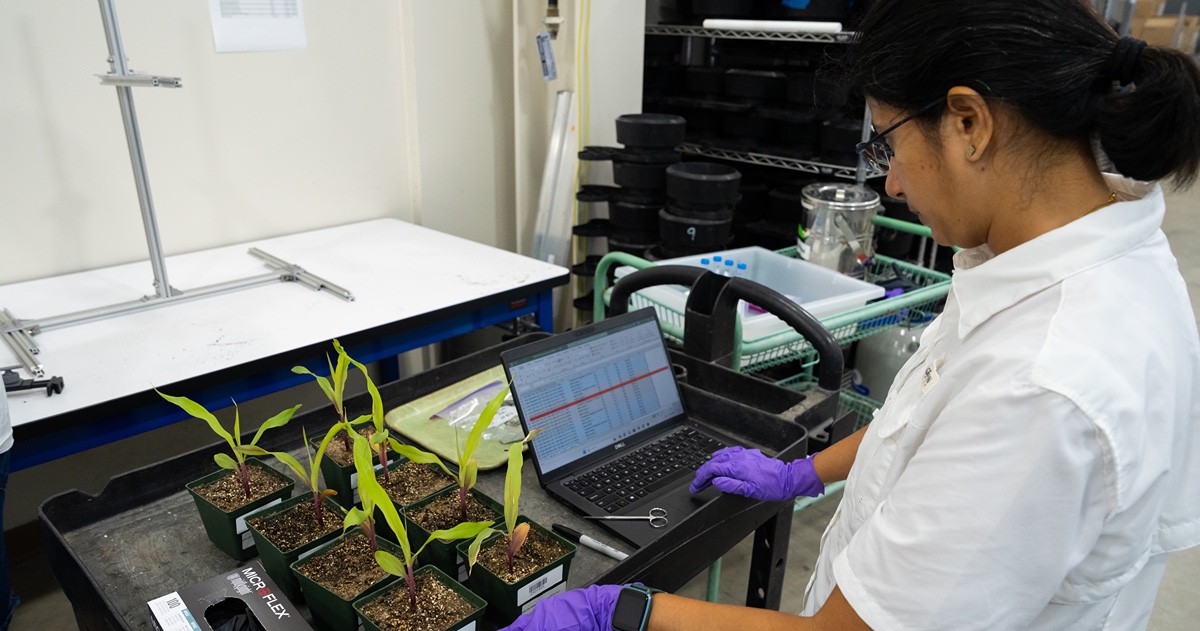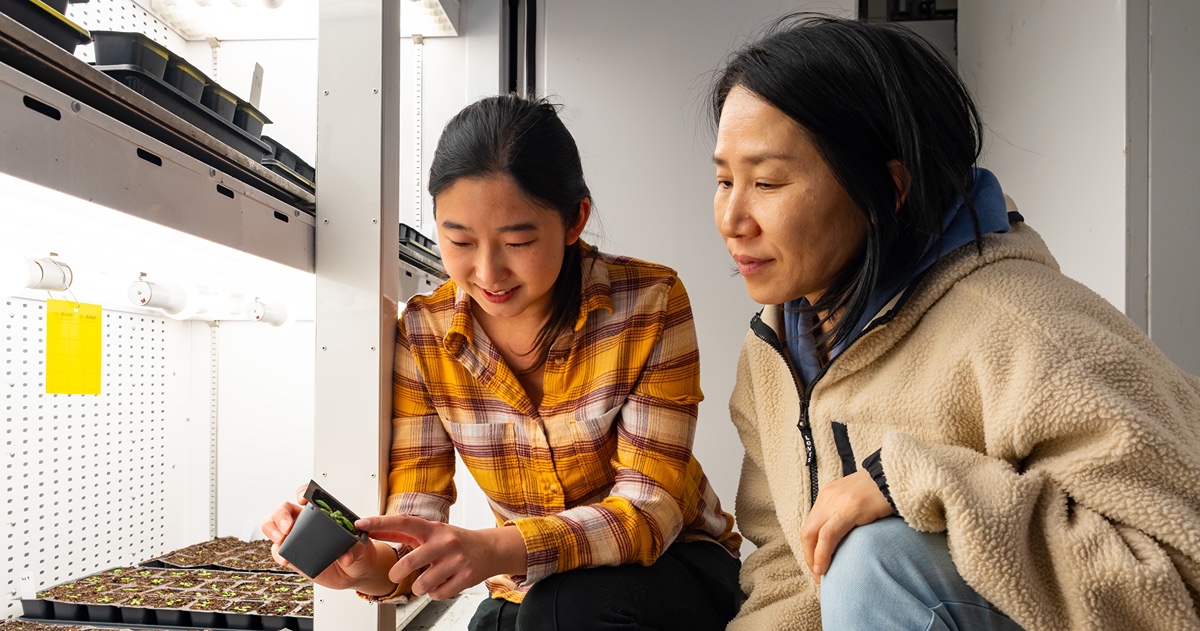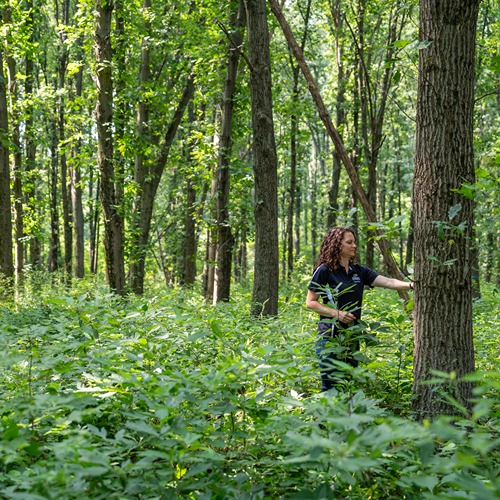‘Plants to people:’ Bob Auber’s path from the Center for Plant Biology to oncology
On Friday March 22, Bob Auber returned to Room 116 in Whistler Hall to stand behind a podium in front of a PowerPoint and keep an audience engaged in the same tables and chairs that he had sat in many times.
His seminar, “Preparing for a job in industry,” was organized by the Center for Plant Biology’s (CPB) Trainee Association Executive Board and attended by graduate students and postdoctoral researchers. Students who enter graduate school right after undergraduate studies usually haven’t had a chance to try opportunities outside of academia. Auber had followed a similar path himself.
After earning a B.S. from Ohio University, Auber joined Jen Wisecaver’s lab in Purdue Agriculture’s Department of Biochemistry. There, he studied everything from Lithospermum erythrorhizon, a plant used in Chinese medicines and cosmetics as early as 700 AD, and a toxic algae that stabs and poisons its prey. He sequenced over a dozen genomes during his time at Purdue. Auber’s work with Wisecaver also provides long standing references that can inform cancer therapy and biofuel exploration.
Auber frankly explained to the graduate students who came to listen to him that day that the transition from finishing their degrees and finding jobs is a scramble. The transition to industry is basically moving to “a laboratory the size of a Walmart, definitely a little bit different from the Whistler basement.”
For Auber, the change was more than just location. He moved from “plants to people” when he was hired as the assistant director of bioinformatics at Pathgroup, a company that runs diagnostic tests on human tissue samples suspected to be cancerous. They are one of the biggest providers of digital diagnoses in the U.S.
Auber said, “I was one of the top world-class experts on this species of algae, and then I was studying humans. I was initially intimidated because there’s more at stake when you’re working with humans. The results of what you do are going to apply immediately; it’s directly translated to human health.”
Pathgroup’s work provides patients a prediction of what kind of therapy will best help them since individualization of treatment increases the likelihood of survival. Despite the high risks associated with the study of cancer, a background in plant sciences provided Auber the skills and knowledge necessary to manage the diagnostics lab.
“Biology is biology. Proteins are proteins. DNA is DNA,” Auber said. “It’s the central dogma, and it doesn’t discriminate between systems. Everyone in the field knows that it translates, and you could surprisingly know just as much as someone working with humans if you have a background in plant biochemistry because it prepares you. You can make comments, make discoveries and contribute just the same.”
Being Wisecaver’s first PhD student, Auber considers himself lucky for all the one-on-one attention he received, something that was complemented by his time with the CPB. The CPB is Purdue’s institutional home for basic plant biology, and it helps foster a training and development community for graduate students and postdoctoral researchers in plant sciences across campus. While Wisecaver prepared him for what would be his favorite part of his new position, management of the streamlined softwares he develops, the CPB prepared him for what he would find most difficult.
“I worked with a handful of different labs within Purdue and at other universities, and I stepped into a role in industry where collaboration is also an unavoidable fate. My experience with the CPB was really collaborative. Every lab is collaborating with another lab in some capacity. It helped me learn how to work with and synergize with other scientists with different expertises,” Auber said.
Collaboration also helped Auber build the communication skills necessary for industry, and the connections he made while in the lab have become useful over and over again. Biological fields overlap more than one might think, and Auber calls it a “small world.” At an oncology conference, he even noticed a Purdue agriculture student recognized for their work on DEAD box proteins, which have implications in lung cancer.
Independence, project management skills, data science knowledge and the abilities to read scientific literature and learn new things from graduate school also translated well into industry. Auber said those are just some of the reasons employers respect Purdue degrees.
The person who had my position before me was a Purdue plant biologist as well. It’s a renowned university, and people know and respect it. PathGroup had expectations, and my education at Purdue prepared me to meet them.”
- Bob Auber, associate director of bioinformatics at PathGroup

